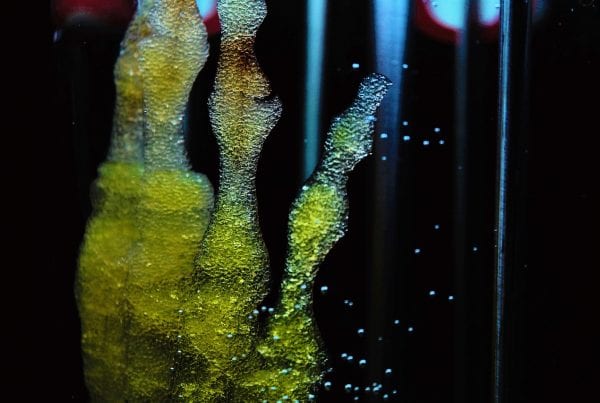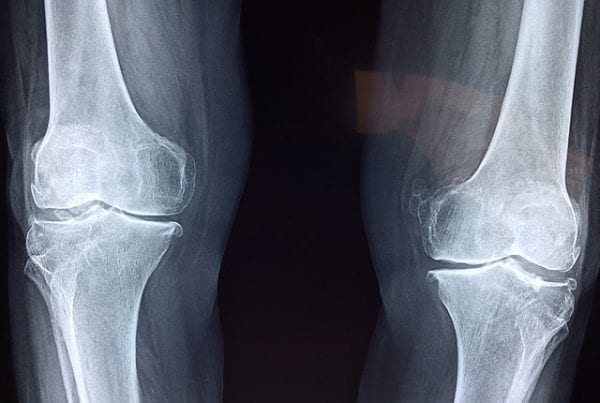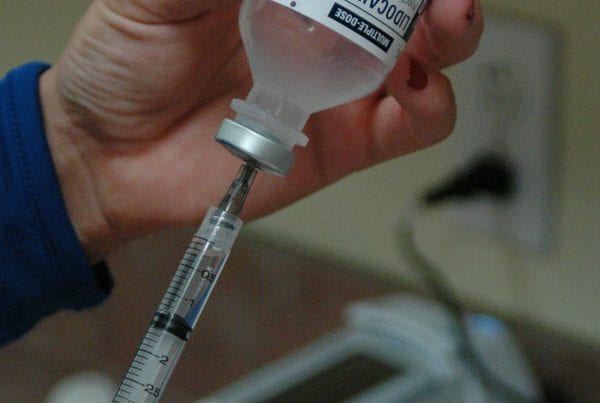Hair disorders are caused by various factors including stress, hormonal fluctuations, genetics, and medical conditions. For many affected people, contracting hair disorders is an emotionally draining experience. According to the American Hair Loss Association, 85% of men and 40% of women will experience significant hair loss by the age of 50.
The International Journal of Women’s Health revealed that hair loss is one of the causes of depression for women. And for men, hair loss can be a sign of anxiety. Every year, two billion dollars are spent worldwide on surgical treatments for hair loss. However, with the discovery of peptide-based medications for hair, you can achieve healthy hair using a simple yet highly effective peptide therapy for hair growth.
What Are Peptides?
Peptides are biological molecules that play a vital role in living organisms and hair growth. They are anti-aging and body-enhancing elements referred to as mini proteins because they are made of a chain of amino acids just like proteins. Peptides are found in every cell and tissue in the human body. You need a certain level of peptides to achieve healthy hair.
Causes of Hair Loss
Some level of hair loss is normal, especially as people get older and the hairs naturally begin to lose strength and volume. On average, 50 to 100 hairs are lost each day, with new hairs regrowing from the same hair follicles.
As people grow older, the follicles decline in their functions and stop producing new hair, and the hair begins to lose its color. This process is a natural occurrence in both males and females and only becomes a significant concern when it occurs prematurely and at a very high rate.
Fortunately, there are several treatment options available for treating hair loss, with the use of peptides being one of the most effective. The following are some of the possible causes of hair disorder:
Alopecia Areata (AA)
Alopecia Areata is one of the leading causes of hair loss. It is a non-scarring auto-immune hair disorder that makes hair fall out in round patches from the scalp, eyebrows, beard, and other parts of the body where hair is present. People in the United States have a 2.1 percent chance of developing the condition, which often occurs in childhood, due to genetic and environmental factors. Although alopecia areata affects hair growth, the follicles are still very much alive, and can still regrow hair if appropriate treatment is applied. And one of the most effective treatment options for Alopecia Areata is peptides for hair growth.
Diet
Protein is a very important element of healthy hair. Additionally, micronutrients such as minerals and vitamins are key components to the follicle hair growth cycle. Malnutrition and a lack of healthy diet can cause several hair problems such as dandruff, dryness, brittle hair shafts, and dull appearance. An adequate diet with peptide therapy for hair growth can help prevent hair loss.
Stress
It is common to experience telogen effluvium, a scalp disorder which is characterized by thinning or shedding of hair, after a long period of stress. Significant stress usually subjects a great deal of hair follicles into a resting stage, resulting in the hair thinning. After months of undergoing some level of stress, you may discover that your hair starts falling off quickly. Stress also affects the melanocyte stem cells that influence hair color, thereby leading to premature graying.
How Do Peptides Work for Hair Growth?
Because they occur in every cell in the human body, peptides have links to every organ, including those responsible for the hair growth cycle, especially the hair follicles. Peptide therapy will help target and send signals to the cells and cause a reaction that will stimulate positive changes.
Peptides and proteins are both made of amino acids. The only difference is the number of amino acids that each is made of. While proteins contain fifty or more amino acids, a peptide is typically between two to fifty amino acids. The follicles need protein to produce hair. Without the presence of adequate protein in the body, it will be difficult to achieve a balanced hair growth cycle.
Peptides, being “smaller proteins,” when applied, cause changes in cell behavior, stimulate follicle growth, and promote natural hair production and improvement of hair color.
Types of Peptides for Hair Growth
Different kinds of peptides are based on the functions they perform in the body. However, almost all peptides have an anti-aging ability that stimulates hair growth and general hair health. Some of them include:
Copper Peptides for Hair Growth
The human body contains a small amount of copper which helps the body to carry out different functions in the blood, brain, and other areas. Without copper, tyrosinase (an enzyme needed to make melanin) and other cuproenzymes will not be able to function. Melanin influences hair color and shields the skin from light damage from electromagnetic radiation and the sun.
Melanin is very important for pigmentation and it depends on copper to function in the body. This causes doctors to theorize that prematurely graying hair could be a result of the low level of copper, as a copper deficiency can affect a person’s hair color. Copper is also needed to break down iron in the body.
The lack of adequate copper in the body causes various problems, such as fatigue, weak growth, skin and muscle soreness, and hair disorders. Since the 1970s, copper peptides have been used as an essential skincare product. Copper peptides are made of three amino acids linked together. They help fight hair loss in the following ways:
- Blocking of the Dihydrotestosterone DTH in the Scalp
DTH has been identified as a primary culprit in hair loss and baldness, especially for men. Copper peptides will help improve hair growth by inhibiting DTH. Once the DTH is blocked, the conversion of testosterone to DTH in your scalp will be stopped because you have prevented it from the original source. With that, you will experience hair growth.
- They Improve Microcirculation
Microcirculation is the circulation of oxygen-rich blood through the smallest vessel in the human circulatory system. All organs of the body, including the hair, require oxygen. Without some degree of oxygen, the follicles will not function well, affecting the hair growth.
In essence, the application of copper peptides will help stimulate the angiogenesis process, which will cause an increase of oxygen and allow regeneration of new blood vessels from previously affected vessels in the follicles. Attaining healthy follicles is the best way to tackle hair problems right from the root cause and achieve fast hair growth.
Copper peptides can also help in regard to stress as one of the causes of hair disorders. The increase of blood vessels will automatically lead to an increase in oxygen and nutrients, and thereby enable quick recovery from intense exercise or stress, preventing symptoms of hair problems associated with stress.
- They Promote Collagen and Repair Skin
Copper peptides also help repair the skin by producing collagen and elastin, which are essential anti-aging elements. Studies have established that copper-dependent enzymes help in skincare more than most anti-aging dermatological products.
The ability to improve collagen and elastin production also allows them to increase the fat cells on the scalp. And according to researchers from Yale University, when there is an increase in fat cells on the scalp, it could lead to a significant increase of hair.
Thymic Peptides for Hair Growth
The thymus has, for a long time, been widely used in medicine. It is known for its immunity-restoring characteristics and ability to stimulate the body’s own immune system to produce T cells and B cells. T cells (T- lymphocytes) help destroy infected or cancerous cells in the body, while B cells (B lymphocytes) work as humoral immunity, which secretes antibodies and destroys foreign pathogens during illness.
However, hair growth is one of the latest discovered therapeutic benefits of thymic peptides. A human study was carried on two different hair disorders: androgenetic alopecia (AGA) and chronic telogen effluvium (TE) over a period of 6 months.
A shampoo based on synthetic thymus peptides and thymus peptide lotion were used by the researchers to investigate the efficacy of the peptide. The study comprised 364 people (male and female) suffering from the two hair diseases.
During the 24-week period, the participants applied the lotion every day, and the shampoo three times a week. The result showed a significant improvement in all the groups, recording 94% of improvement with an average improvement of symptoms of 89% for the AGA patients.
For the TE patients, 98% improvement with an average symptom of 95% was also recorded. Additionally, 100% of cases in the groups reported no side effects with positive compatibility, and 98% of positive cosmetic acceptance. This study is further proof of the efficacy of peptides in the dermatology branch of medicine, which has helped many people solve their hair problems.
Thymus peptides don’t just stimulate hair growth, but they also work as inhibitors to factors that cause hair loss. They help in improving common symptoms that are associated with several hair diseases, such as itching, erythema, and seborrhea.
Biomimetic Peptides for Hair Growth
The biomimetic peptide is another kind of peptide therapy for hair growth. Biomimetic peptides function as major growth factors in the body and affect general bio-stimulation of the skin. They are composed to have a similar structure to the natural peptides to allow them to act as those that occur in the natural body.
This makes them perform the same functions in regulating cellular body metabolism with the same effect as natural peptides. In cosmetology, they serve different purposes, which include anti-pigmentation, anti-aging, anti-cellulite, improvement of skin regeneration, and prevention against hair loss. They regulate the synthesis proteins Ki-67 and contribute to the stimulation of the regeneration process and initiation mechanism that prevent aging.
Biomimetic peptides cover a wide range of applications, such as body fat reduction, weight loss, and hair growth. One of the most common biomimetic peptide products is capixyl. It is a powerful peptides signal agent, made of a blend of water, dextran, butylene glycol, Trifolium presence, and acetyl tetrapeptide-3. It primarily targets the healing of tissues, just like the natural peptides in the body.
It is believed to have a direct effect on reductase enzyme, thereby preventing dihydrotestosterone, which is a major factor that affects the follicle and causes of hair loss. It also enhances dermal protein papilla, hence resulting in better hair stability. It helps prevent hair shedding and stimulate general hair health.
Are There Any Side Effects of Peptides for Hair Growth?
Generally, peptides don’t have any major side effects. However, for hair growth and other dermatological use, you may have some degree of redness, inflammation, itching, rashes, and other symptoms when you start using the products. This typically depends on how your body reacts to the medication. You will need to first do a patch test before using any peptide-based product to be sure if you are allergic to it or not.
Where Can I Get Peptides for Hair Growth?
There are several peptide-based medications for hair growth available in the U.S. peptide market. You can obtain them from Modern Therapy MD. Be sure to speak with your Clinical Advisor to determine the most appropriate product for your case. Also, let your Clinical Advisor know if you are already using other anti-aging products.
How Modern Therapy MD Can Help you with your Peptide Needs
At Modern Therapy, we are committed to improving our patients’ quality of life using cutting edge therapies and techniques. We can provide you with the best peptides in the USA. You can contact us today for your Peptide needs by filling out this free contact form.



